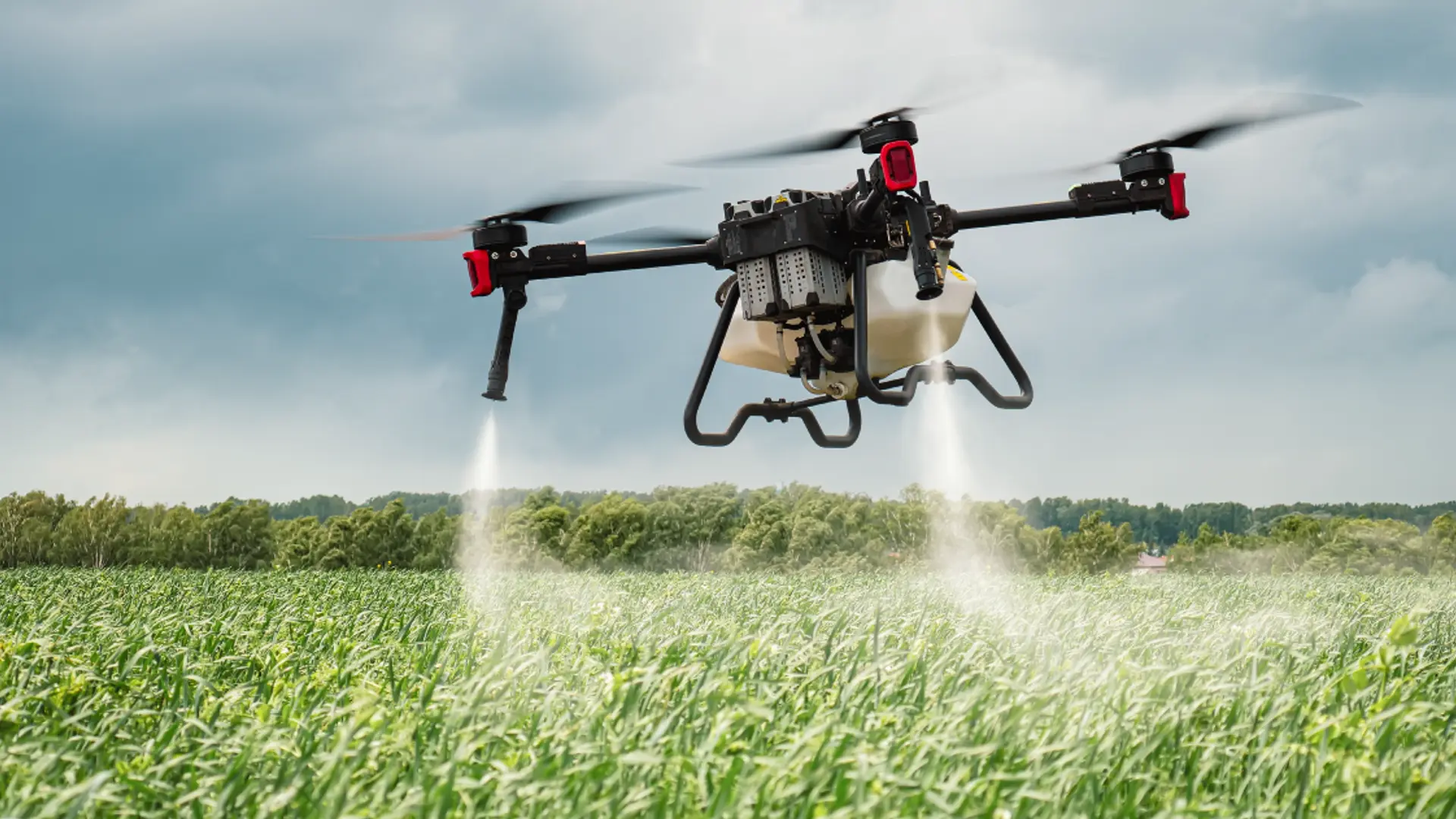Sustainability in farming: the role of drone spraying in reducing pesticide use
The technology of drones serves as a modern option that guarantees to transform the use of insecticides while contributing to extra environmentally friendly agriculture.
In the changing agricultural landscape, strength for sustainability is more important than ever. One of the most important areas of focus is the lower use of insecticides, which have long been a key element of today's agricultural operations. While insecticides are amazing at controlling pests, they have been criticised for their environmental and fitness results.
As a result, the technology of drones serves as a modern option that guarantees to transform the use of insecticides while contributing to extra environmentally friendly agriculture.
The effects of pesticides on environment and human health
Pesticides protect crops from disease and pests, thereby offering nutrients and agricultural productivity. However, their massive use has raised extreme concerns. Pesticides can pollute air, water, and soil, and harm non-target creatures of helpful pests, birds, and also aquatic life. In addition, crop residues can pose a health hazard to any buyer and farm worker.
Reducing pesticide use while maintaining agricultural yields is a complex challenge that demands innovative solutions. Traditional pesticide application methods such as ground spraying and aerial spraying often lead to uneven distribution and significant waste. It's the drone technology that's changing the game.
Drone spraying: accuracy and efficiency
Drone spraying, often called Unmanned Aerial Vehicle (UAV) application, uses cutting-edge technology to deliver insecticides with particular precision. These drones are equipped with GPS, sensors, and sophisticated software that allows them to precisely navigate the fields and deliver the most suitable insecticides. This precision minimizes the total amount of insecticide used, reducing environmental contamination and potential damage to non-target species.
One of the maximum critical benefits of drone spraying is its ability to deliver customised treatments. Drones can be programmed to fly along unique trajectories, ensuring that insecticides are applied evenly and exclusively to pest-infested areas. This targeted method is not only effective in insecticide protection, but it additionally reduces the possibility of insect resistance, which is an average problem with conventional blanket spraying techniques.
Advantages of drone spraying
In the quest for sustainable agriculture, drone spraying is emerging as a transformative technology that delivers precision, efficiency, and environmental benefits, noticeably reducing pesticide use while increasing crop conditions and yields. Here's a look at the top level of its few advantages.
● Reduced chemical use: Drone spraying successfully targets insect hotspots, resulting in reduced chemical use. According to research, drone spraying can reduce pesticide use by up to 30%, resulting in huge reductions in chemical runoff and soil infection.
● Improved crop health and yield: Precision spraying improves crop health and productivity by applying the correct amount of insecticide. In addition, the ability to get into difficult terrain and tend to crops constantly increases the productivity of the farm.
●Cost Effectiveness: While the initial funding for drone technology can be substantial, the long-term benefits are great. Reduced pesticide use and accelerated crop yields result in cheaper expenses and additional revenues for farmers.
● Work efficiency: Drone spraying eliminates the need for manual labour, which is especially beneficial for large farms that are struggling with labour shortages. Drones can cover huge areas quickly and accurately, freeing up human resources for other important work.
●Environmental protection: The precise application of pesticides minimises their impact on the surrounding environment. This is important for preserving biodiversity and protecting ecosystems. In addition, drones have a lower carbon footprint compared to conventional spraying strategies, contributing to overall sustainability.
Overcoming challenges
While the advantages of drone spraying are obvious, there are barriers to wider use. Small-scale farmers may face challenges such as the initial expense of drones and the requirement for technical competence. However, as technology progresses and becomes more accessible, these obstacles are expected to fall.
Drone technology adoption is also heavily influenced by regulatory frameworks. Ensuring that regulations keep pace with technological advancements is critical for fostering innovation while maintaining safety requirements. Governments and agricultural organisations must collaborate to develop policies that encourage the incorporation of drone spraying into traditional farming techniques.
The future of sustainable farming
Drone technology is an important step towards sustainable farming, but it is not a complete solution. Integrating drone spraying with other sustainable methods, such as crop rotation, biological pest control, and organic farming, can result in a more holistic approach to agriculture that prioritizes both productivity and the environment.
As drone technology advances, its use in agriculture is expected to grow. Drones with improved sensors for real-time monitoring of crop health, soil conditions, and insect activity could be among the next developments. These innovations will allow farmers to make data-driven decisions, increasing the efficiency and sustainability of their activities.
In conclusion, drone spraying offers a promising solution to one of the most pressing challenges in modern agriculture: reducing pesticide use while maintaining crop health and productivity. By leveraging precision technology, drones can minimize environmental contamination, enhance crop yields, and contribute to the overall sustainability of farming practices. As we look forward, embracing such innovations will be key to creating a more sustainable and resilient agriculture.
(Vidur Varma is the CEO of Agri Wings)
(Disclaimer: The views and opinions expressed in this article are those of the author and do not necessarily reflect the views of YourStory.)







